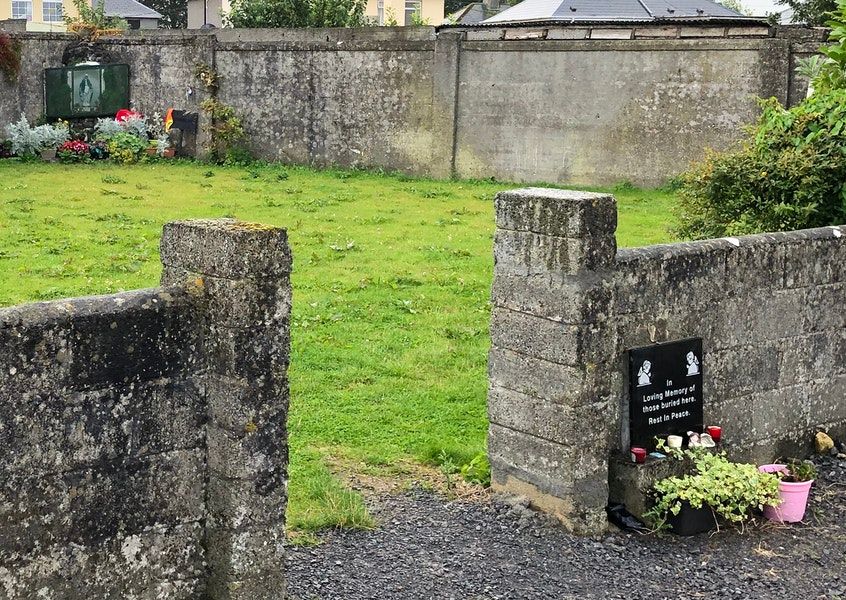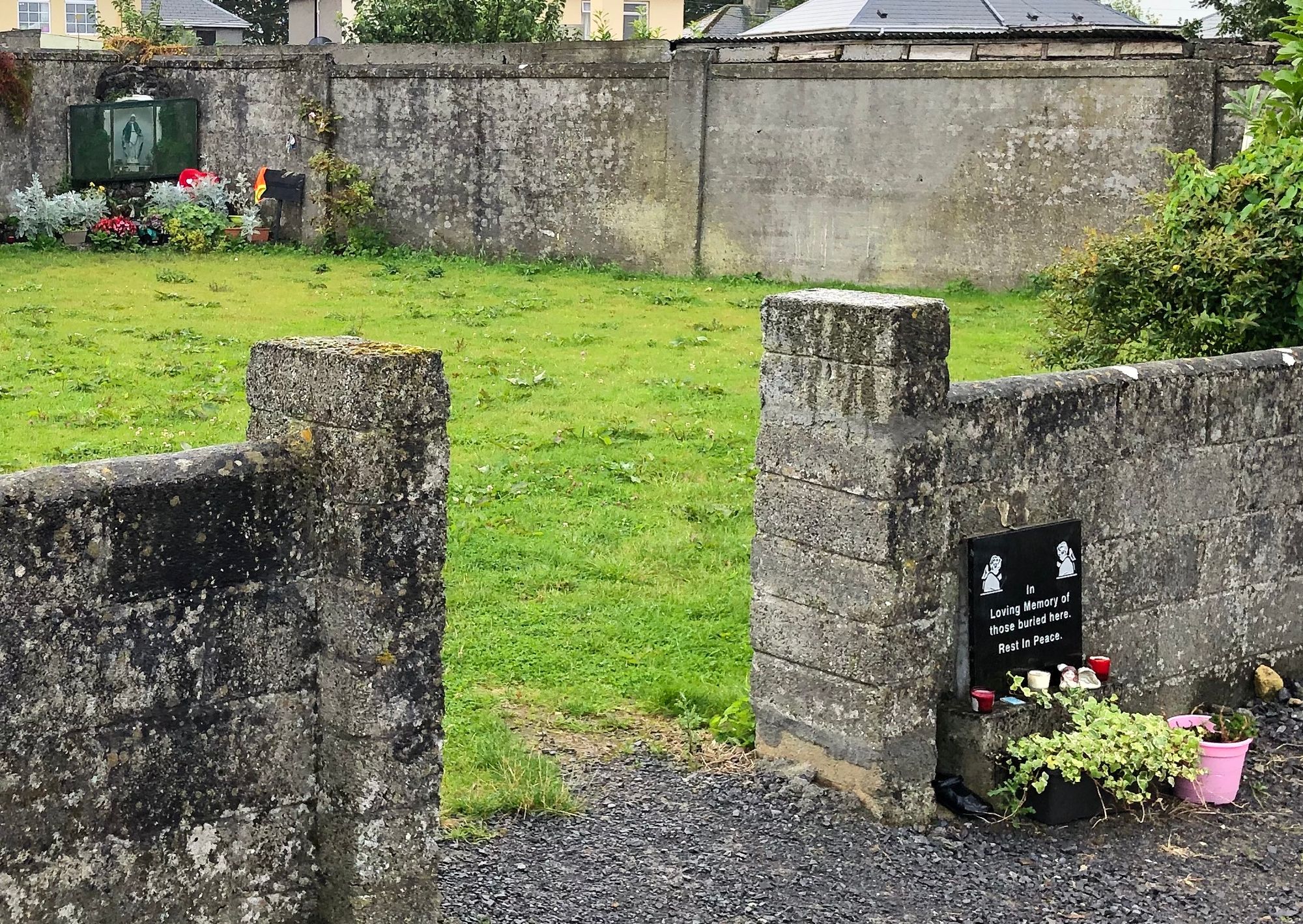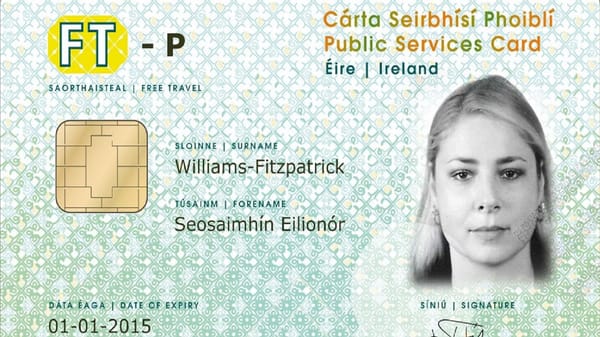The Gist: Survivors refuse to stay on Mute
The Mother & Baby Homes Commission of Inquiry returned to the public's attention as one of the Commissioners decided to speak about it for the first time at an invitation-only Oxford University zoom

The Minister for Children, Equality, Disability, Integration and Youth Roderic O’Gorman started off looking like he might have a quiet fortnight. By the end of the first week, he found himself on air arguing that he might have to withhold redress from Mother & Baby Home survivors if they insisted on their experiences being officially recognised.
By the end of the second week, his Government was saying it planned to appoint another expert to do a new report into those testimonies to address the Commission report’s failures.
Apart from the continuing marvel of a Minister apparently eager to continue to put the torch to his own credibility in order to act as a spokesman for his Department’s unsustainable policy positions, the past two weeks have provided a kaleidoscope of views into how power in Ireland works now.
This is the Gist.
1) Survivors make change through being right
The old style system of dealing with an uncomfortable circumstance was to shunt it out of the political realm into a report. This drained away the momentum of media attention and the issue could be squared away at some later point with a report of greater or lesser utility, assuring everyone the matter was now sorted.
This model broke down when the McAleese report was met with sufficiently detailed and persuasive resistance. But the Mother and Baby Home Commission report took things further. Survivors had empowered themselves immediately before the report’s release in the fight over the sealing of their records. They had mobilised mass support through measures such as the fastest-growing petition in modern Irish history and through voters expressing their disgust to their own TDs at the treatment of their friends and neighbors.
At the same time, advocates took to the air to deliver a series of analyses of the Minister and his Department’s legal position which saw its credibility collapse to the point where his own Attorney General disowned it, at cabinet.
This demonstrated to politicians there was real political risk to them in blindly accepting appeals to authority, and copperfastened to the media that survivors and their advocates had expertise which potentially exceeded the state’s.
When the Commission’s report issued in January, its shortcomings were immediately evident and those setting them out had already proved themselves reliable analysts to the public and to the media and political class.
Analysis and argument from fact, not institutional authority, was now the primary yardstick for whether the report would be presented as a success or failure. And it was survivors and their advocates who had both the credibility and the moral authority to determine that.
2) Institutions still have power, even without legitimacy
The Irish state is a very old thing. It is older than the 100 years of Irish independence, being still the system of command and control inherited from the colonial state of pre-1921. It operates on a presumption of a monopoly of authority- once the state has pronounced on a matter it expects that pronouncement to be taken as the last word.
The roiling over the rejection by the voting public of the State’s institutional response to an inquiry into its own part in a system of mass incarceration, unpaid labour and the forced separation of babies from their mothers has, strange as it may seem, taken it quite by surprise.
The Commission of Inquiry refused to answer questions about its work to the Oireachtas Committee on Children by way of a letter. This was the third such refusal, but was made all the more indefensible in the light of one of its members having already given a talk and answered questions as part of an academic online seminar for Oxford University grads.
But, though that talk and its admissions about how the ‘confidential committee’ testimony of survivors was addressed (ie, not) pushed heat into the issue it is likely that the more long term, and unanswerable damage to the reputation of the Commission’s report was done by the almost simultaneous publication of a forensic analysis of its accuracy and academic rigor by archivist Catriona Crowe in the Dublin Review.
The Commission could argue all it liked with the judgements on its findings. There is no answer to a specific academic analysis demonstrating quotations being made up.
How, in a passage consisting mostly of paraphrase and summary of elements from Caroline’s testimony, did the Confidential Committee manage to invent one quotation and botch another?
- The Commission and the Survivors, by Catriona Crowe
Nonetheless, unless repudiated by the Government, this report will stand as the official historical account of this shameful system of abuse. The McAleese report is still being cited by Irish Government officials at the UN to defend the state’s role in the Magdalen laundries element of Ireland’s coercive confinement gulag.
Institutional power continues as the default, whether or not it has lost its legitimacy in the eyes of the public.
3) The Department of Children is failing
At the same time that Prof. Daly was giving her talk to Oxford University’s blessed few, the Department of Children, Equality, Disability, Integration and Youth was issuing its first, belated responses to survivors’ data access requests for their records.
It did not go well. Redactions continued to bedivill the releases of survivors’ access to the records of their own lives. However, there was one astonishingly obtuse bloc of refusals. Health records- particularly critical for survivors who may have been used as test subjects as infants as part of vaccine trials- were simply not released. The Department sent a letter citing an unspecified regulation in a statutory instrument from 1989 which, they said, obliged them to give the records to a doctor and not directly to the survivor.
This was both mind-bogglingly patronising and paternalistic, but also (as I set out in this sample letter available to anyone who got this reply) completely at odds with the Minister and the Department’s obligations under EU law to give survivors access to their records.
These three statements seem to be at odds with one another. But, unfortunately, that doesn’t mean they won’t all continue to be true until one finally overcomes the others.
photo credit: Auguste Blanqui
- Hello! Thanks for reading down to the bottom of this email. If you like the Gist, why not forward it to your friends that you suspect might like it as well. They might subscribe and then you’d both be ace!





